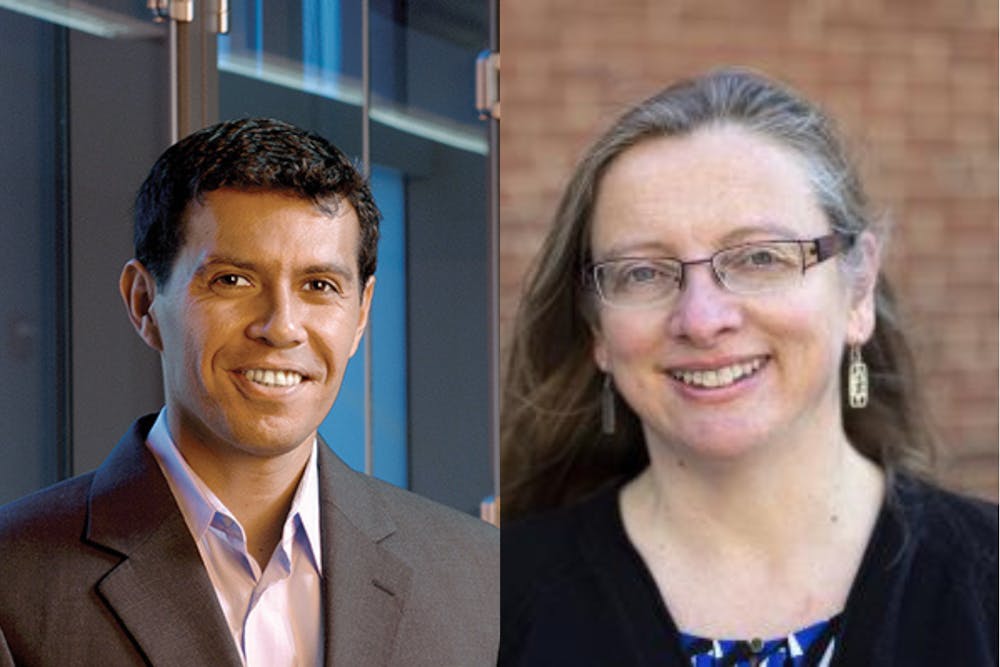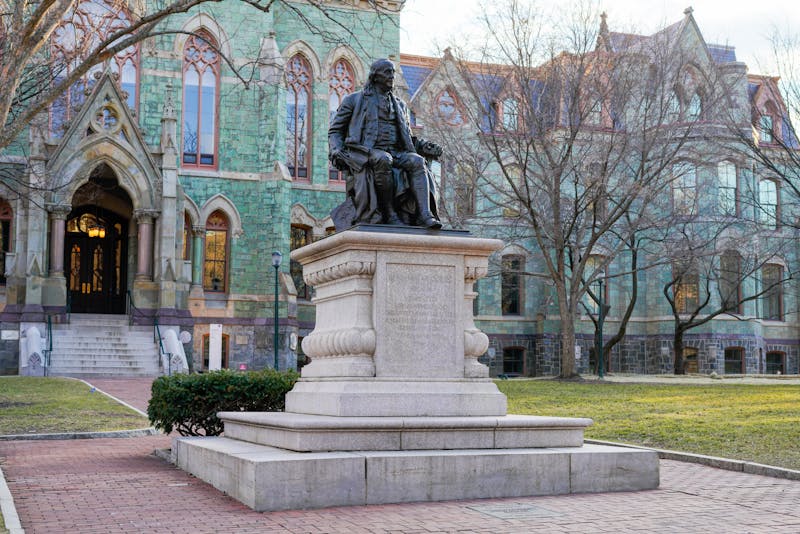
Two Penn professors, Paulo Arratia and Evelyn Thomson, have been elected as 2022 Fellows of the American Physical Society.
The APS is a non-profit scientific research organization that works to “advance and diffuse the knowledge of physics” through publications, outreach, and the support of its over 50,000 members worldwide.
The APS Fellowship program was developed to highlight the outstanding achievements of its members in the understanding, application, or instruction of physics. APS Fellows are nominated by their departmental colleagues and confirmed by the APS Council.
Paulo Arratia is a professor of Mechanical Engineering and Applied Mechanics as well as Chemical and Biomedical Engineering in the School of Engineering and Applied Sciences. His personal research focuses on complex fluids — any substance in fluid form that is neither water nor air — and the study of how they move through space.
According to APS, Arratia received the fellowship for his “creative and insightful experimental discoveries in the fields of complex and biological fluid mechanics.”
Evelyn Thomson is a professor of Physics in the College of Arts and Sciences with specific areas of expertise in experimental particle physics and collider physics. She's pursued these fields of research at laboratories such as Fermilab and CERN.
Thomson was awarded the APS honor for “initiating and leading original searches at the Large Hadron Collider for the simplest extension of the Minimal Supersymmetric Standard Model that has spontaneous violation of the R-parity symmetry,” the organization said.
For both Arratia and Thomson, this fellowship is the most recent in a series of significant scientific and professional achievements.
In 2018, Arratia won the Lindback Award for Distinguished Teaching, a recognition given by the University each year. As a member of Penn’s Senate Committee on Students and Educational Policy, he also worked with a student task force to engage Penn faculty in a mental health initiative.
Thomson was part of a team of four Penn physics professors who, in 2013, contributed to the technology that uncovered the Higgs boson particle, a Nobel-prize-winning discovery.
Arratia and Thomson are now members of a distinguished cohort. According to the APS website, the Fellowship is awarded to “no more than one-half of one percent of the Society’s membership.”
The Daily Pennsylvanian is an independent, student-run newspaper. Please consider making a donation to support the coverage that shapes the University. Your generosity ensures a future of strong journalism at Penn.
Donate






